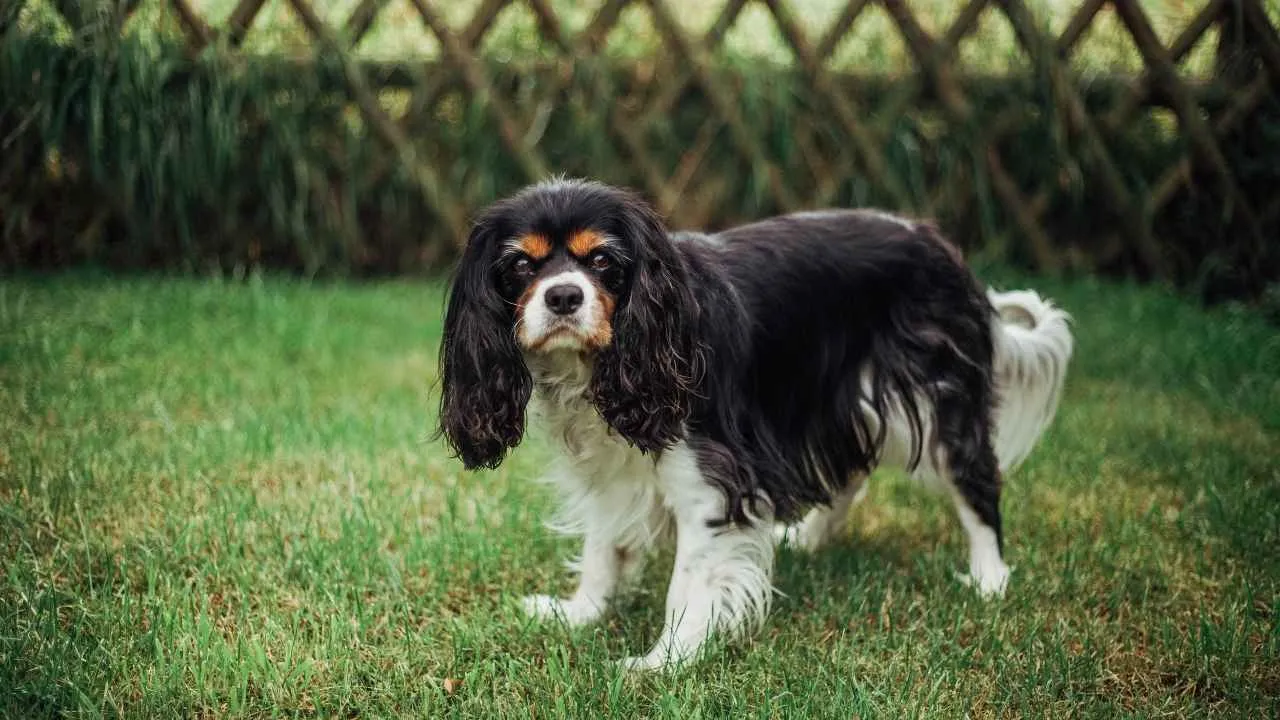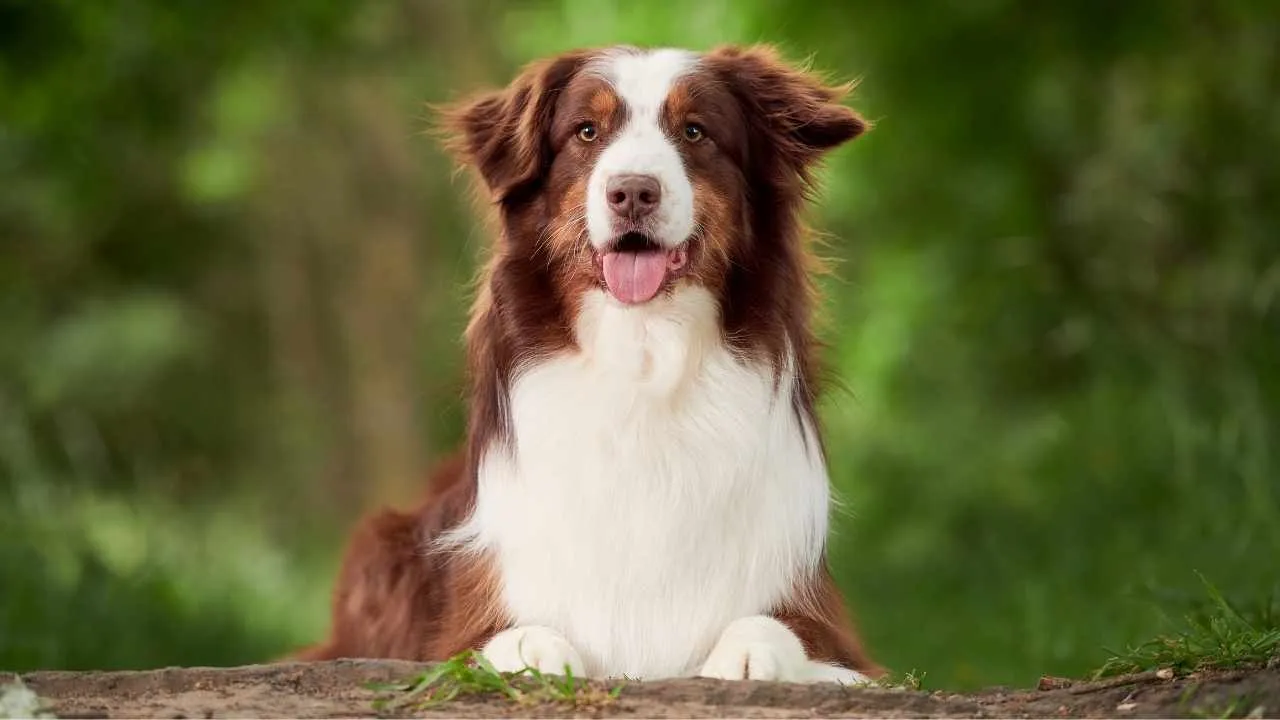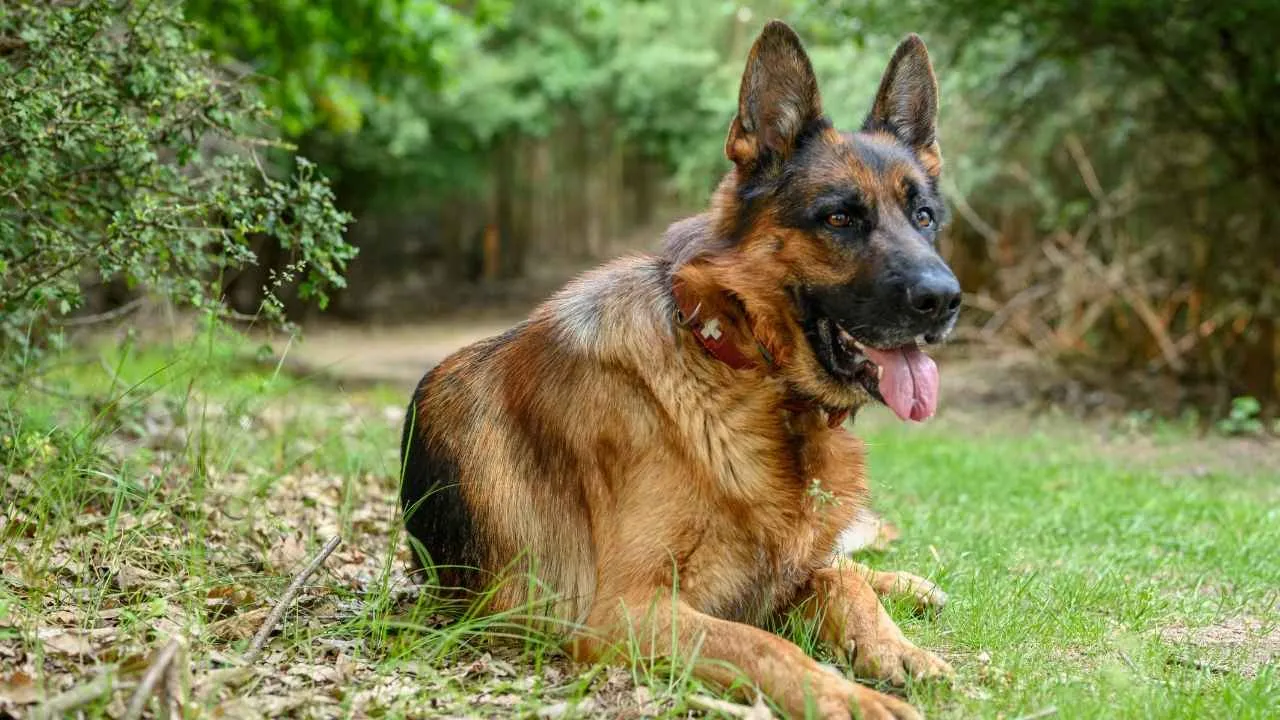Dogs are known for their loyalty and unconditional love, but some breeds go even further by forming deep emotional connections with their owners. If you’re someone who thrives on empathy and understanding, then you might find joy in caring for a dog with a heightened sensitivity to emotions.
These extremely sensitive dog breeds are highly attuned to the moods and feelings of those around them, often responding with remarkable tenderness and intuition. Whether you’re feeling down or happy, they’re right there beside you, ready to offer comfort or share in your joy.
However, owning such a dog requires a unique level of care and patience, as they need a calm and stable environment to feel secure. In this article, we’ll dive into the world of emotionally sensitive dogs and explore what makes them such extraordinary companions for those who truly understand their needs.
Extremely Emotionally Sensitive Dog Breeds
1. Bernese Mountain Dog

The Bernese Mountain Dog is not just admired for its beautiful coat and sturdy build but also for its deep emotional sensitivity. These dogs form intense bonds with their families and can be profoundly affected by changes in mood.
A sharp tone or a stressful atmosphere can leave a Bernese feeling hurt or confused, as they easily mirror the emotions of the people around them. Their gentle nature makes them feel more like empathetic companions than typical pets.
Bernese Mountain Dogs need a household filled with patience and kindness. Harsh discipline or chaotic environments can make them anxious and withdrawn. They crave stability and inclusion, and too much alone time can lead to feelings of sadness or behavioral changes. Being close to their family isn’t a luxury for them—it’s a true necessity.
One of the most remarkable things about Bernese is their ability to offer quiet, comforting support without being asked. They will often sit close, lay a paw gently on you, or simply stay near when they sense you’re upset. Their emotional radar is incredibly sharp, allowing them to react to even the unspoken feelings of their humans. They don’t seek attention for themselves—they offer it selflessly.
Training a sensitive breed like a Bernese Mountain Dog requires a soft, understanding hand. They respond far better to positive reinforcement and praise than to stern correction. Even a look of disappointment can break their spirit. Encouraging them through love and patience helps them feel safe, confident, and eager to please, creating a bond of trust that lasts a lifetime.
As noted by AKC, Bernese Mountain Dogs are prized for their sensitive nature and soulful loyalty. Their huge hearts make them incredibly loving but also vulnerable. When nurtured in a caring environment, they become not just pets but irreplaceable family members who seem to understand and share every emotion they feel.
2. Yorkshire Terrier

Underneath the feisty spirit and proud posture of the Yorkshire Terrier lies a surprisingly delicate heart. These tiny dynamos are often seen as bold and fearless, but those who live closely with them know just how deeply they feel.
A Yorkshire Terrier doesn’t just hear your words; they absorb your tone, your body language, and your energy. Joy in the home makes them playful and bright; tension makes them retreat with wary, watchful eyes. Their sensitivity isn’t about fear—it’s about a heart that’s tightly woven to the emotional fabric of their family.
Yorkies carry their emotions close to the surface, and they react with surprising intensity to being scolded, ignored, or left alone for too long. A raised voice can leave them trembling, and an extended absence can lead to stubborn, even destructive, behaviors rooted in heartbreak rather than rebellion.
Despite their small size, these dogs harbor a loyalty that feels larger than life. They seem to have an almost sixth sense of human emotions, pressing close when sadness fills a room or bouncing alongside laughter as if trying to lift it even higher.
Their connection to their people runs so deep that they often anticipate needs before they’re spoken. With a Yorkie, you’re never alone in your feelings—they’re either celebrating your highs or quietly anchoring you through your lows.
Handling a Yorkshire Terrier with harshness is a mistake many first-time owners make. They respond best to warmth, patience, and positive reinforcement, thriving when treated like a respected partner rather than a subordinate.
Gentle leadership, combined with affection and consistency, gives their sensitive nature the security it craves. When a Yorkie feels safe and loved, their confidence blooms, revealing a personality that’s endlessly endearing and fiercely devoted.
Yorkshire Terrier is a reminder that sensitivity isn’t a weakness—it’s a superpower. Wrapped in a silky coat and carried by tiny paws, their heart beats in rhythm with yours, a little guardian of your emotions, always alert, always giving, and always loving with every ounce of their spirited soul.
3. Border Collie

Border Collies are often celebrated for their unmatched intelligence, but few talk enough about their nature as truly sensitive souls. Beneath their bright, alert eyes lies a heart that feels everything deeply. With a herding background, these dogs have been bred to tune into the subtle changes in their environment and the people around them.
These highly sensitive dogs are profoundly attuned to their surroundings, catching shifts in your tone, mood, and even the slightest change in household energy. For dog owners who value emotional connection, a Border Collie offers a companionship that feels almost intuitive, like having a friend who understands you without a single word spoken.
This exceptional emotional sensitivity, while beautiful, can also make the Border Collie vulnerable. Loud noises like fireworks, thunderstorms, or sudden commotion can send them into a state of distress. They aren’t just startled—they internalize the chaos, often seeking comfort from their trusted humans.
Left alone too long, these emotional dogs can quickly spiral into separation anxiety, channeling their loneliness into restless pacing, obsessive behaviors, or even depression. Their need for strong emotional bonds is not a preference—it’s a lifeline.
Petplan states that Border Collies demand high levels of physical and mental stimulation. Without challenges and purpose, their sensitive nature can turn inward, leading to anxiety or withdrawal.
Training games and structured activities aren’t just entertainment—they are emotional nourishment. They crave tasks that keep them engaged and reassured, weaving mental effort with emotional balance in a way few breeds truly require.
With patience, respect, and consistent affection, dog owners unlock a devotion so pure and fierce it feels almost sacred. If you dream of a friendly, emotionally intelligent companion who reads your heart as easily as they chase a ball across a field, the Border Collie is the right choice.
Their loyalty isn’t casual—it’s absolute. They are sensitive souls built for those who understand that true companionship means caring for not just a dog’s body, but their deeply feeling heart as well.
4. Cavalier King Charles Spaniel

The Cavalier King Charles Spaniel is the epitome of affectionate, emotionally intelligent companionship. Known for their friendly and gentle nature, these small dogs are deeply sensitive to their owners’ emotions.
As noted by AKC, these small dogs were favored by royalty and aristocracy, known as “Spaniel Gentle” or “Comforter Spaniel,” and served as companions, lap warmers, and foot warmers. Their history as lap dogs has made them incredibly attuned to human needs, and they often seek to be close to their families, offering comfort with a soft, loving presence.
Their strong desire for companionship means they do not enjoy being isolated, and extended periods of loneliness can lead to stress or sadness. These dogs thrive in homes where they are treated as true family members and receive plenty of attention and affection.
Cavalier King Charles Spaniels are incredibly responsive to the emotional atmosphere around them. Whether you’re feeling upbeat or down, these dogs will mirror your emotions. A sad tone or a stressful situation can make them quietly seek your side, while laughter and joy will have them bounding with excitement.
Their big hearts make them loving and devoted, yet also vulnerable to emotional shifts. They don’t just want to be near you—they want to be part of your emotional world, offering empathy and affection in ways that feel almost human. Whether cuddling on the couch or resting beside you, the Cavalier’s presence brings a sense of calm, reminding you that you’re never alone, even in your most difficult moments.
The Cavalier King Charles Spaniel isn’t just a dog; they are a loyal, loving friend who fills your heart with warmth. Their emotional sensitivity and companionship make them one of the most beloved breeds for those seeking a close bond with their pet.
5. Australian Shepherd

The Australian Shepherd is an emotionally intelligent dog known for its empathetic nature and deep connection to its family. These dogs are incredibly in tune with the emotions of their human companions. Whether you’re feeling happy, stressed, or unwell, an Australian Shepherd will respond to your energy, offering comfort or excitement as needed.
Australian Shepherds are known for their remarkable sensitivity, both emotionally and intuitively. Bred originally as working dogs, they developed a deep instinct to stay closely connected to their handlers, always picking up on even the subtlest changes in mood or behavior.
This emotional intelligence makes them incredibly loyal and affectionate, but it also means they can be easily affected by harsh tones, changes in routine, or long periods of loneliness. Their sensitive nature requires owners who are patient, gentle, and consistent, creating a secure environment where these dogs can thrive emotionally.
Because of their boundless energy, Australian Shepherds crave constant mental stimulation and meaningful interaction, and without it, they may become anxious, destructive, or withdrawn. Early socialization, positive training, and a lot of daily engagement are key to keeping an Aussie’s sensitive spirit happy and healthy.
They don’t just want to be by your side—they want to actively engage with you. Whether it’s through play, walks, or training sessions, they need close attention to stay emotionally healthy. Their natural tendency to seek connection means they often bond deeply with their families, offering loyalty and affection in abundance.
At the same time, Australian Shepherds are also sensitive to the presence of strangers, quickly sensing any change in their environment. While they may be cautious at first, their sensitivity allows them to warm up and form bonds with new people as long as they feel secure and respected.
For an Australian Shepherd, being surrounded by people and having their emotions acknowledged is essential. They are at their best when they feel valued as more than just a pet, thriving in an environment where they are consistently given time, attention, and love.
6. Shih Tzu

The Shih Tzu has long been a cherished lap dog, historically bred to be a royal companion in China. Their small size and affectionate nature made them ideal for sitting by the side of emperors and nobility, offering quiet company and warmth. This history has shaped their deep need for human companionship, and they still thrive best when surrounded by their family, always eager to stay close.
Sensitive and highly attuned to their owners’ emotions, Shih Tzus are natural emotional support dogs. They respond strongly to the feelings of those around them, offering comfort when stress or sadness fills the room. Whether it’s a gentle nudge or simply curling up beside you, their presence is soothing, making them not just pets but loyal, loving companions.
Shih Tzus are incredibly social dogs, always eager to be part of family life. They thrive on positive interactions and are happiest when involved in the daily rhythm of their human world. Their strong emotional bonds mean they feel deeply connected to their owners and may struggle with feelings of loneliness if left alone for too long.
Their sensitivity makes them more than just alert—they truly feel the emotional atmosphere around them, ready to act as a source of comfort for their loved ones when needed most.
Caring for a Shih Tzu means recognizing their need for companionship. Their emotional health is as important as their physical care, and neglecting their need for connection can impact their well-being. When treated with love and attention, a Shih Tzu becomes an irreplaceable, devoted companion, offering a bond built on mutual trust and affection.
7. German Shepherd

The German Shepherd is often seen as a tough, working dog capable of enduring challenging conditions. However, beneath this rugged exterior lies a highly responsive, emotionally sensitive soul. This sensitivity makes them exceptional at reading their owner’s emotions, responding to even the smallest cues, whether it’s a change in tone or a shift in mood.
While German Shepherds are known for their ability to handle tough conditions, they are also prone to emotional ups and downs. Prolonged isolation or a lack of engagement can make them feel anxious or stressed.
German Shepherd thrives in an environment where they are included in the family dynamic and provided with plenty of positive interactions. Without this emotional stimulation, they may become withdrawn or develop undesirable behaviors.
This breed’s big hearts make them incredibly loyal and protective, not just of their families but of their emotional well-being. They form strong bonds and can be incredibly intuitive when it comes to sensing their owner’s feelings.
Whether you’re happy or stressed, your German Shepherd will pick up on it and react accordingly, offering comfort during difficult times or standing watch when they sense something isn’t right.
Despite their capability and resilience, German Shepherds are deeply affected by the emotional atmosphere around them. They may appear tough, but they are also prone to becoming stressed in unstable environments or when they sense tension in their household.
Their sensitivity to these emotional shifts makes them incredibly empathetic companions, always attuned to the well-being of those they love.
Britannica states that a German Shepherd’s balance of emotional depth and physical capability makes them a perfect companion for those who understand the delicate balance between their strength and sensitivity. When cared for properly, these dogs offer unparalleled loyalty, protection, and affection, becoming not just pets but true family members.
Conclusion
When it comes to emotionally sensitive dog breeds, it’s important to recognize how deeply certain breeds bond with their families. The American Pit Bull Terrier, sometimes called a “nanny dog” for its sweet nature with children, and the loving Staffordshire Bull Terrier both thrive on affection and quality time.
Gentle giants like the Dogue de Bordeaux and large dogs like Labrador Retrievers and Golden Retrievers are also incredibly tuned in to their humans, making long hours of loneliness have a negative impact on their emotional health. Some breeds even extend their sensitivity to other animals in the home, forming deep friendships across species.
Because certain breeds are more vulnerable to emotional shifts, owners need to pay close attention to their dogs’ needs, ensuring a stable, loving environment where these amazing animals can flourish.


